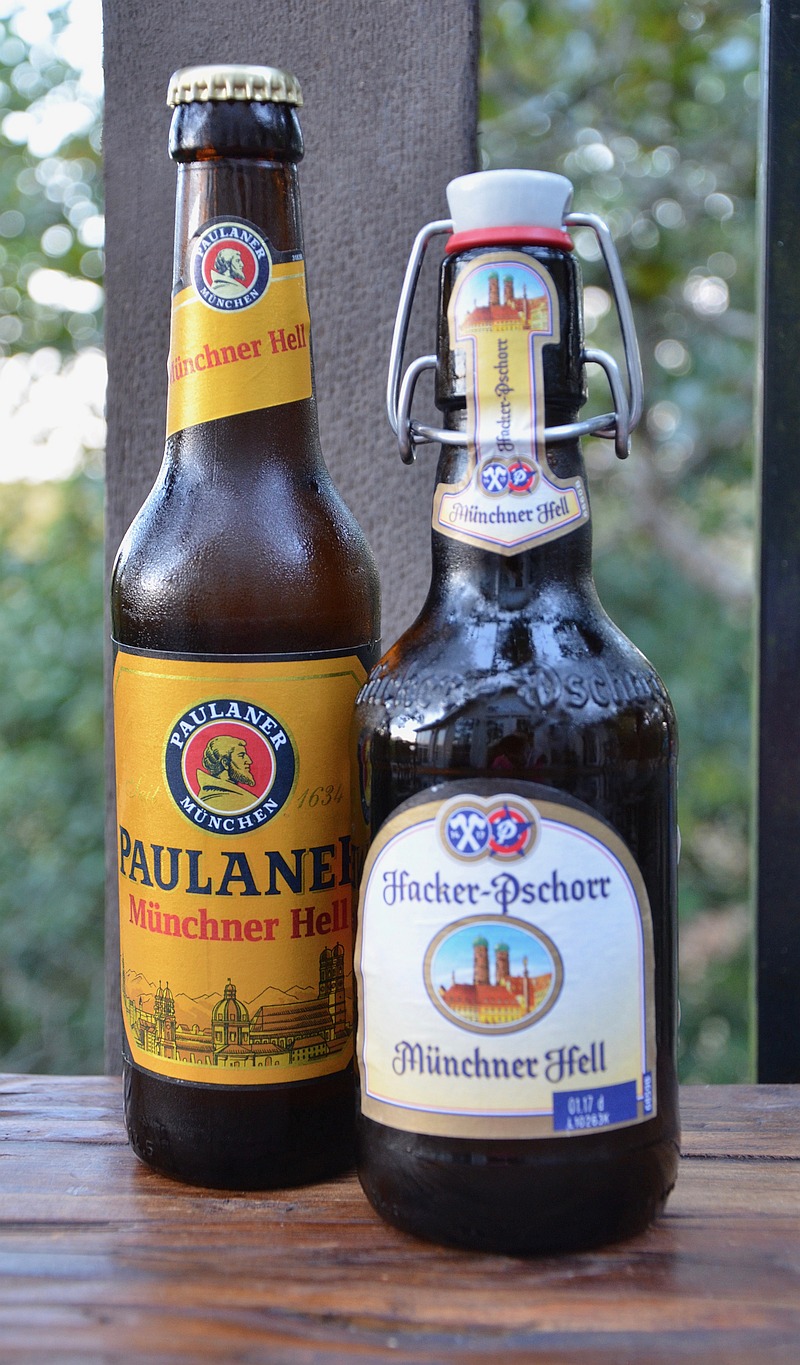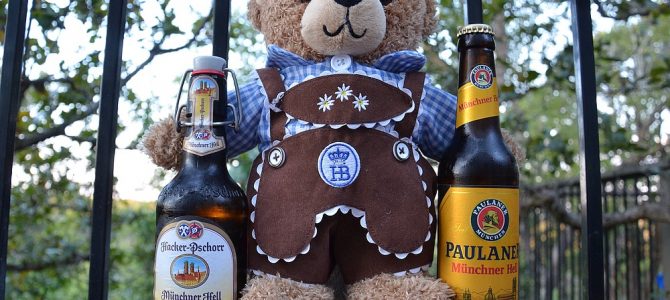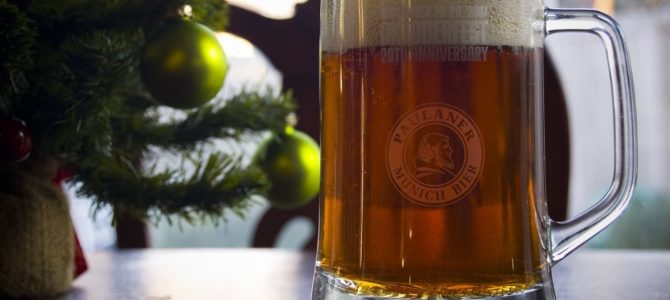My wife is a world traveler. She’s much smarter than I am, and spends her days playing with numbers like I play with Legos. Part of her world travels recently took her to Munich, land of beer. Sitting in her room at the hotel one night, she decided to raid the minibar and see what kinds of beer was available.
In most hotels in the United States you’ll find Bud Light, Miller Light, or some other bland, semi-tasteless beer in the fridge. In Munich, she found two pretty tasty local beers, each with a great history. She stashed them in her suitcase and brought them home for me to try.
As we’ve touched on before, Munich is beer heaven, the home of Oktoberfest, and an absolutely lovely place to visit. I went to Munich when I was in college backpacking across the continent with my oldest friend. It’s one of those cities where it’s easy to get lost, in a good way. Tons of old-world charm awaits around every corner, with beautiful parks, great museums, and of course lots of beer.
As a man who loves beer, going to Hofbräuhaus in Munich was like taking a trip to Mecca. It may not be the best glass of beer you’ll ever drink, but it is the best stein of beer you’ll ever have. In Hofbräuhaus, or other beerhalls in Munich, it’s not just about the beer. It’s the long tables packed with people, the smell of bratwurst and sauerkraut wafting through the air, the brassy Bavarian music that has you swaying in your seat, and the beautiful German women carrying fists full of beer steins rushing from table to table. How do they carry that much beer in each hand?
That’s the kind of beer memory you can have in Munich, and that’s what my wife’s Munich beer run brought back to me.
The first bottle I had was the Münchner Hell from Hacker-Pschorr. Now, this isn’t just any brewery. Hacker-Pschorr is known for what is fondly called the “beer fortress” they built in the early nineteenth century. The massive brewery and cellar encompassed 43,000 square feet with enough storage room for almost 30,000 barrels. Next time war breaks out, I’m going to hide in a beer fortress.
The Hacker-Pschorr helles lager comes in a cool swing-top bottle you just don’t see many of these days. It pours a light straw color, with a good effervescence, particularly for a bottle that crossed an ocean in an airplane cargo bay. It has some nice bread-like aromas, with just a touch of hops and good lasting malts in the taste. It’s not the most complex Helles, but it has that fresh from Bavaria quality that helps it out, at least in this case.
Also smuggled away in my wife’s suitcase was a Münchner Hell from Paulaner. This brewery dates back to 1634 and the Paulaner Monks of the Neudeck Monastery. The beer they brewed was so sought after by locals that the commercial brewers in Munich petitioned the mayor to ban the monks from selling it. He refused, and the brewing traditions of the monks have continued. It is one of the six breweries pouring beer at Oktoberfest and is the official beer of FC Bayern, the Munich soccer team.

The Paulaner Münchner Hell is a traditional helles lager not unlike the Hacker-Pschorr. It is a pale gold color, with a creamy white head, and is incredibly easy to drink. Not a whole lot of hit you over the head flavors in this beer, but its malty, doughy taste finishes a little sweet and would make a good accompaniment to some bratwurst and spicy mustard.
Are these the best beers in the world? No, but they still transported me back to Munich for cheaper than the price of an international plane ticket, and made for an absolutely fantastic present. Cheers to my better half, whose hard work and world travels make it possible for me to write about beer. Thank you, sweetheart!









